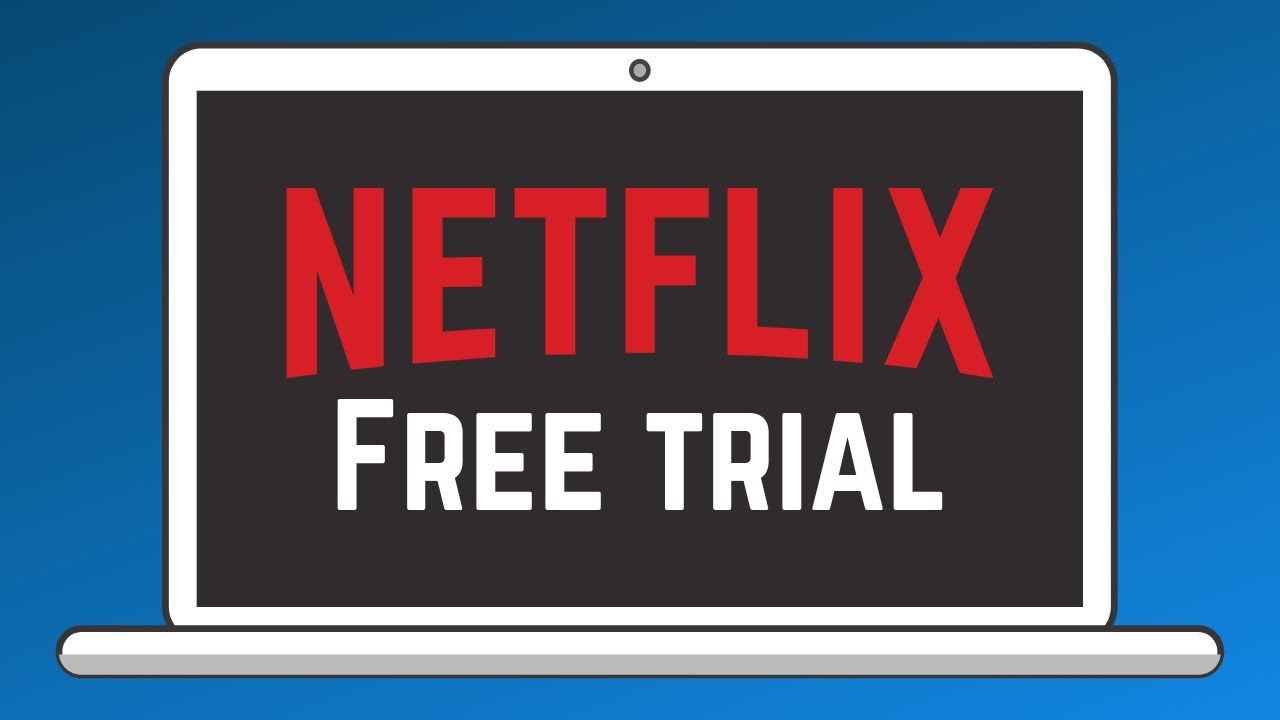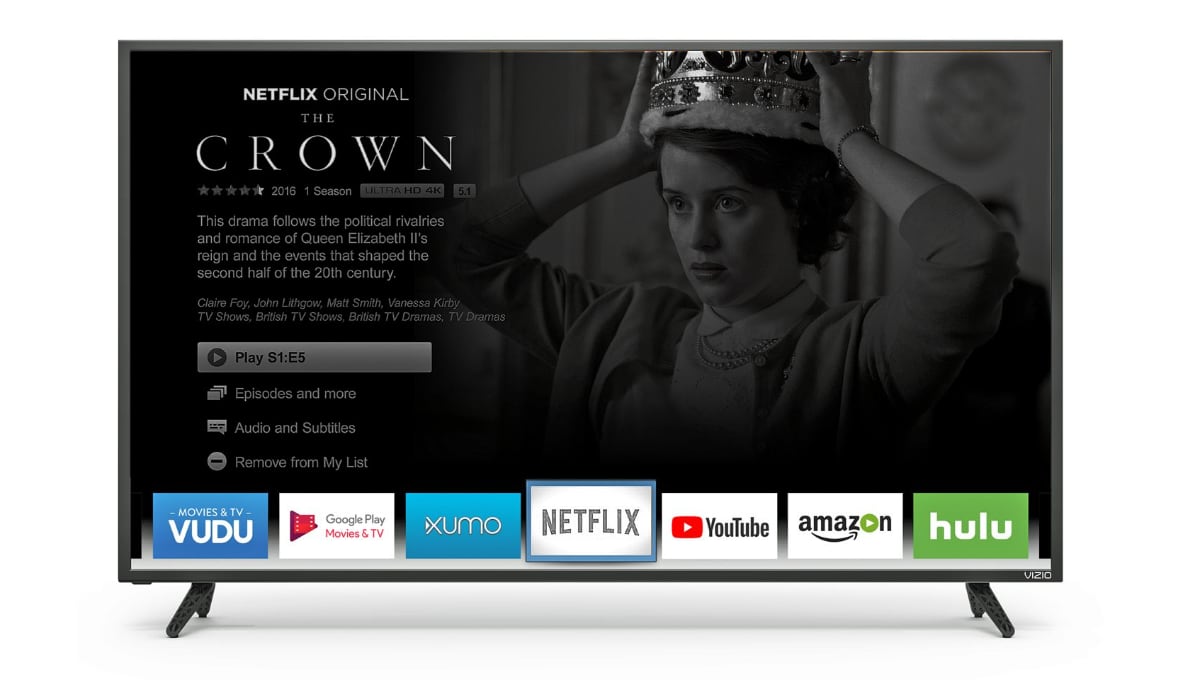Introduction
Welcome to the era of streaming, where a plethora of entertainment options are just a few clicks away. Netflix, the pioneer of the streaming industry, has revolutionized the way we consume media. With thousands of movies, TV shows, and original content available on-demand, it’s no wonder that Netflix has amassed over 200 million subscribers worldwide.
While Netflix continues to dominate the streaming market, there’s a practice that has raised some eyebrows – password sharing. Most of us have been guilty of it at some point: sharing our Netflix login credentials with family, friends, or even acquaintances. It may seem harmless, but it is a topic that has garnered attention and sparked debates among both users and industry experts.
Password sharing on Netflix involves sharing login details with individuals who do not reside in the same household. This practice allows multiple people to access Netflix’s extensive library of content without each person having their own account. While it may seem convenient and cost-effective, it raises questions regarding the legality and ethics of sharing accounts.
So, why does Netflix tolerate password sharing, despite the potential loss of revenue? The answer lies in their growth strategy and understanding of consumer behavior. Netflix recognizes that password sharing, to some extent, acts as a marketing tool. When users share their login information, it exposes others to Netflix’s content, creating a potential new customer base.
Furthermore, Netflix understands that allowing some level of password sharing can result in customer loyalty. By indulging their users and accommodating their preferred viewing habits, they can increase customer satisfaction and retention rates. This lenient approach towards password sharing is one way Netflix differentiates itself from its competitors and keeps its users loyal.
However, the impact of password sharing on Netflix is not entirely positive. One of the key concerns is the potential loss of revenue. When multiple individuals share an account, Netflix is essentially losing out on potential subscription fees. This loss may be significant, especially when considering the vast number of users actively engaged in password sharing.
In addition to the financial implications, password sharing can also disrupt Netflix’s content recommendation algorithms. With multiple people accessing one account, Netflix’s algorithms might struggle to accurately recommend personalized content for each user. This can result in subpar user experiences and dissatisfaction.
What is password sharing on Netflix?
Password sharing on Netflix refers to the practice of sharing login credentials with individuals who are not part of the same household. It allows multiple people to access Netflix’s vast library of content without needing to create their own account. For example, someone might share their username and password with a friend, giving them access to their Netflix subscription.
This sharing of account information enables non-subscribers to enjoy the same benefits as paying customers, without having to bear the cost. It’s a phenomenon that has become increasingly common, with surveys suggesting that a significant percentage of Netflix users engage in password sharing to some extent.
While sharing passwords with family members, such as parents and siblings, may seem reasonable, the practice becomes more contentious when extended to friends, colleagues, or distant acquaintances. Some users justify it as a way to save money or to foster a sense of community by sharing the streaming experience with others. However, others argue that it constitutes a violation of Netflix’s terms of service and is tantamount to stealing content.
Netflix has established policies discouraging password sharing, stating in their terms of service that accounts should not be shared outside of the household. They have implemented certain measures to prevent widespread password sharing, such as limiting the number of concurrent streams allowed per account. However, they have been relatively lenient in enforcing these policies, leading to the prevalence of the practice.
This issue of password sharing is not unique to Netflix. Other streaming platforms, such as Hulu and Amazon Prime Video, also face similar challenges. However, Netflix’s vast user base and extensive library make it a prominent focus of this debate. As the leading streaming platform, the issue of password sharing on Netflix has attracted attention from industry experts, regulators, and the media.
Next, we will explore the reasons behind Netflix’s tolerance towards password sharing and the potential impact it has on their business model.
The reasons behind Netflix’s tolerance towards password sharing
Netflix’s seemingly relaxed approach towards password sharing may raise eyebrows, but it is rooted in strategic reasoning and an understanding of consumer behavior. Here are some key reasons why Netflix tolerates password sharing:
1. Marketing and Exposure: By allowing users to share their login credentials with others, Netflix benefits from free marketing and increased exposure. When someone shares their account, it introduces new users to Netflix’s extensive content library. This exposure can potentially convert non-subscribers into paying customers in the future.
2. Customer Loyalty: Netflix recognizes that accommodating password sharing can foster customer loyalty. By being flexible and acknowledging the shared viewing habits of users, Netflix enhances customer satisfaction and retention rates. This leniency sets Netflix apart from its competitors and strengthens its relationship with users.
3. Expanding User Base: Password sharing allows Netflix to tap into potential markets that might be otherwise inaccessible. In regions where Netflix might face certain barriers, such as affordability or payment methods, password sharing enables users to experience the platform’s content, potentially converting them into paying subscribers in the long run.
4. Competitive Advantage: Netflix’s tolerance towards password sharing can be seen as a strategic move to differentiate themselves in the market. By being less restrictive than other streaming platforms, Netflix positions itself as a user-friendly and inclusive service provider, attracting users who prioritize flexibility and convenience.
5. Data and Insights: The data collected from password sharing can provide valuable insights into user behavior and content preferences. This data allows Netflix to refine its algorithms and recommendations, creating a more personalized and tailored user experience.
It is important to note that while Netflix tolerates some level of password sharing, they do not condone excessive abuse of this practice. They have implemented measures, such as limiting the number of concurrent streams per account, to deter extensive password sharing. However, enforcement of these measures remains relaxed, allowing a certain level of flexibility for users.
Next, we will explore the potential impact of password sharing on Netflix’s business model and revenue streams.
The impact of password sharing on Netflix
Password sharing on Netflix may have several implications for the streaming giant, both positive and negative. Let’s examine the impact of this practice:
1. Loss of Revenue: One of the primary concerns for Netflix is the potential loss of revenue due to password sharing. When multiple individuals share a single account, Netflix misses out on the opportunity to charge each person for their own subscription. This loss of revenue can be significant, especially considering the size of Netflix’s user base and the widespread prevalence of password sharing.
2. Increased Customer Satisfaction: On the flip side, password sharing can boost customer satisfaction and engagement. By allowing users to share their accounts, Netflix caters to the preferences and viewing habits of its users, which fosters a positive user experience and keeps customers loyal. This user-centric approach can contribute to the platform’s long-term success.
3. Disrupted Content Recommendations: With multiple individuals accessing one account through password sharing, Netflix’s algorithms for content recommendations can be affected. The recommendations may become less accurate or tailored to individual preferences, compromising the personalized viewing experience that Netflix prides itself on. This can lead to frustration and dissatisfaction among users.
4. Marketing and Word-of-Mouth Promotion: While password sharing may cause some revenue loss, it also acts as a form of free marketing for Netflix. When users share their accounts, they introduce new potential customers to Netflix’s content, creating word-of-mouth buzz and expanding the platform’s reach. This organic promotion can help attract new subscribers in the long run.
5. Limiting New Customer Acquisition: On the downside, password sharing can impede Netflix’s ability to gauge accurate user metrics and customer acquisition. With a single account being shared among multiple individuals, it becomes challenging for Netflix to accurately track unique users and understand the reach of their platform. This can hinder their ability to make informed business decisions and target new customers effectively.
While these impacts may vary in significance, Netflix as a company continues to thrive despite password sharing. They have acknowledged the issue but have yet to take strict measures to eliminate it completely, possibly due to the delicate balance between revenue loss and customer satisfaction.
In the next section, we will explore potential measures that Netflix could adopt to control password sharing and mitigate its impact on their business model.
The potential measures to control password sharing
While Netflix has been relatively tolerant of password sharing, there are potential measures they could adopt to control and mitigate its impact. Here are some possible strategies:
1. Multi-factor authentication: Implementing a multi-factor authentication process can add an extra layer of security to user accounts. This would require users to provide a verification code sent to their registered email or phone number in addition to their login credentials. This would make it more difficult for users to share their accounts with others who do not have access to the verification codes.
2. IP address tracking: Netflix could track the IP addresses associated with user accounts to identify unusual activity. An account being accessed from multiple IP addresses in different locations could be flagged as potentially engaging in password sharing. Netflix could then prompt users to verify their identity or take appropriate actions to prevent unauthorized access.
3. Device authentication: Linking user accounts to specific devices could be a way to control password sharing. By allowing users to authenticate their accounts on authorized devices only, Netflix could limit access to shared accounts from unknown devices. This measure could discourage password sharing while still allowing flexibility for family members or individuals residing in the same household.
4. User verification: Netflix could periodically request users to verify their identities through additional authentication methods like biometrics or security questions. This would help ensure that the account is being used by the authorized user and discourage the sharing of login information with unauthorized individuals.
5. Enhanced account monitoring: Netflix could employ advanced algorithms and technologies to detect patterns and anomalies in account usage. By analyzing data such as simultaneous streaming from multiple locations or excessive IP address changes, they can identify potential cases of password sharing and take appropriate action.
6. User education and awareness: Netflix can take proactive steps to educate users about the importance of account security and the potential consequences of password sharing. By increasing awareness, users may be more inclined to refrain from sharing their login credentials, leading to a reduction in password sharing instances.
It’s important to note that implementing stricter measures to control password sharing could also have potential drawbacks. Striking the right balance between deterring password sharing and preserving user convenience and satisfaction is crucial for Netflix’s continued success.
In the next section, we will explore Netflix’s official stance on password sharing and their perspective on the issue.
Netflix’s stance on password sharing
Netflix has taken a somewhat lenient stance when it comes to password sharing. Although sharing accounts outside of the household is against their terms of service, Netflix has not actively pursued aggressive measures to crack down on this practice. Instead, they have focused on improving the overall user experience while acknowledging the complexities surrounding password sharing.
Reed Hastings, Netflix’s co-founder and co-CEO, has famously stated, “We love people sharing Netflix whether they’re two people on a couch or 10 people on a couch. That’s a positive thing, not a negative thing.” This statement reflects Netflix’s understanding of the social aspect of password sharing and their recognition of the potential benefits it brings.
While Netflix is aware of the revenue loss associated with password sharing, they view it as a trade-off for customer satisfaction and the opportunity to attract new subscribers through exposure. They believe that a more flexible approach to account sharing can contribute to long-term customer loyalty and increased engagement.
Netflix has implemented certain measures to discourage excessive password sharing without resorting to strict enforcement. They have limited the number of simultaneous streams allowed per account, depending on the subscription plan. This serves as a subtle deterrent to sharing accounts with a large number of individuals.
Additionally, Netflix continues to invest in innovative technologies to enhance account security and monitor account activity. They are constantly seeking ways to strike a balance between protecting user accounts from unauthorized access and accommodating the shared viewing habits of their users.
Although Netflix has the legal right to take action against password sharing and enforce their terms of service more strictly, they have chosen a more lenient approach to maintain a positive relationship with their user base. This approach aligns with Netflix’s overarching strategy to prioritize viewer satisfaction and long-term growth instead of short-term revenue gains.
It is worth noting that the issue of password sharing remains a topic of debate, both within the industry and among Netflix users. Some argue that stricter measures should be in place to combat the potential loss of revenue and ensure fairness, while others appreciate the convenience and sense of community that sharing accounts provides.
What the future holds for Netflix’s stance on password sharing remains to be seen. In the following section, we will explore potential ways in which Netflix might address this issue and potentially bring an end to widespread password sharing.
How Netflix might end password sharing in the future
While Netflix has embraced a more tolerant approach towards password sharing, there may come a time when they decide to take more definitive action to address this issue. Here are some potential strategies that Netflix could employ to end widespread password sharing:
1. Stricter enforcement: Netflix could choose to enforce their terms of service more rigorously, actively monitoring and cracking down on instances of password sharing. They could implement advanced technologies to detect unauthorized users and take appropriate action, such as suspending or terminating accounts found to be engaged in extensive password sharing.
2. Phased-in limitations: Instead of immediately implementing strict measures, Netflix could gradually introduce limitations to discourage password sharing. They might consider reducing the number of simultaneous streams allowed per account or introducing tiered pricing plans that charge additional fees for multiple users accessing the same account.
3. Enhanced authentication methods: Netflix could explore the adoption of more sophisticated authentication methods to verify the identities of users. This could include biometric authentication, such as fingerprint or facial recognition, or the integration of two-factor authentication to ensure that only authorized users can access their accounts.
4. Sharing-specific plans: Netflix might consider introducing specialized plans that cater specifically to users who wish to share their accounts with others. These plans could include different pricing tiers or features that allow for multiple user profiles under a single account, encouraging users to subscribe and share within the platform’s designated parameters.
5. Collaborations with ISPs and device manufacturers: To address the issue on a broader scale, Netflix could partner with internet service providers (ISPs) and device manufacturers to develop technologies that limit access to shared accounts from unauthorized devices or non-verified IP addresses.
6. Education and awareness campaigns: Netflix could embark on educational initiatives to raise awareness about the impact of password sharing and emphasize the importance of account security. By educating users about the ramifications of this practice, Netflix may be able to encourage voluntary compliance and reduce password sharing instances.
It’s important to note that any measures taken to end password sharing would need to balance the desire to preserve user convenience and flexibility while protecting the company’s business interests. Netflix’s ability to navigate this delicate balance will be critical in determining how they address the issue in the future.
Next, let’s explore alternative options available to Netflix users that could provide a solution for those seeking to share their streaming experiences without violating Netflix’s terms of service.
Alternatives to password sharing on Netflix
While password sharing on Netflix may be a popular practice, there are alternative options available to users who want to share their streaming experiences without violating Netflix’s terms of service. Here are a few alternatives to consider:
1. Netflix profiles: Netflix allows users to create multiple profiles within a single account. This feature enables family members or individuals residing in the same household to have their own personalized viewing experience. By utilizing separate profiles, users can share an account while still maintaining their own preferences and recommendations.
2. Family plans: Netflix offers family plans that allow for simultaneous streaming on multiple devices. This option is especially suitable for households where multiple family members wish to access Netflix simultaneously on their own devices without the need for sharing login credentials outside of the household.
3. Gift subscriptions: Instead of password sharing, users can consider gifting Netflix subscriptions to friends or family members who do not reside in the same household. By gifting a subscription, users can provide loved ones with their own personal access to Netflix content, ensuring a legitimate and separate streaming experience.
4. Shared billing: Netflix allows users to share billing information with family members or friends. By opting for shared billing, individuals can contribute to the cost of a Netflix subscription while maintaining separate accounts and enjoying the platform’s content without the need for password sharing.
5. Screensharing apps: There are various screensharing apps available that allow users to stream content together in real-time. These apps sync the viewing experience across multiple devices, enabling friends or family members in different locations to watch Netflix content simultaneously while each using their own accounts.
6. Affiliate programs: Some users may consider participating in Netflix’s affiliate programs. By referring friends or family members to sign up for their own Netflix accounts, users can earn incentives. This serves as a way to encourage others to create their own subscriptions rather than resorting to password sharing.
It’s important to note that while these alternatives offer ways to share the streaming experience, users should consider the terms and conditions set by Netflix. Each option should be utilized within the boundaries set by Netflix to ensure compliance.
While password sharing has become a cultural norm for many Netflix users, exploring these alternatives can help maintain a legitimate and enjoyable streaming experience for all parties involved.
In the concluding section, we will recap the key points discussed throughout the article and provide a summary of the overall impact of password sharing on Netflix.
Conclusion
Password sharing on Netflix has become a prevalent practice among its users. While Netflix has been relatively tolerant of this behavior, there are both positive and negative implications to consider. On one hand, password sharing can serve as a marketing tool, increase customer satisfaction, and expose potential subscribers to Netflix’s content. On the other hand, it can result in revenue loss, disrupt content recommendations, and pose challenges in acquiring accurate user metrics.
Netflix’s lenient stance on password sharing is driven by their growth strategy, customer-centric approach, and understanding of consumer behavior. They prioritize customer satisfaction and value the exposure and loyalty that password sharing can bring. However, this tolerance also raises concerns about revenue loss and the potential exploitation of sharing accounts outside of the household.
To address the issue in the future, Netflix could consider stricter enforcement, enhanced authentication methods, or collaborations with ISPs and device manufacturers. Education and awareness campaigns could also be effective in reducing password sharing instances. It is crucial for Netflix to find the right balance between deterring password sharing and maintaining user convenience and satisfaction.
For users who still want to share their streaming experiences without violating Netflix’s terms of service, alternative options like Netflix profiles, family plans, gift subscriptions, shared billing, screensharing apps, and participating in affiliate programs can provide legitimate ways to share content with others.
In summary, password sharing on Netflix remains a complex topic with varying perspectives. It continues to be a practice that challenges Netflix’s business model, revenue streams, and user experience. Moving forward, it will be interesting to observe how Netflix adapts their strategies to address password sharing and balance the needs of their users and their own interests.

























